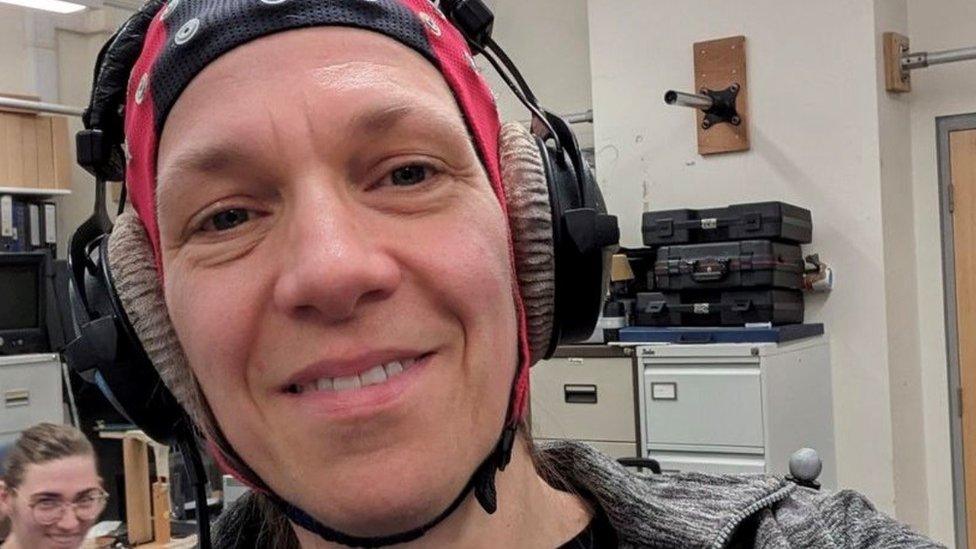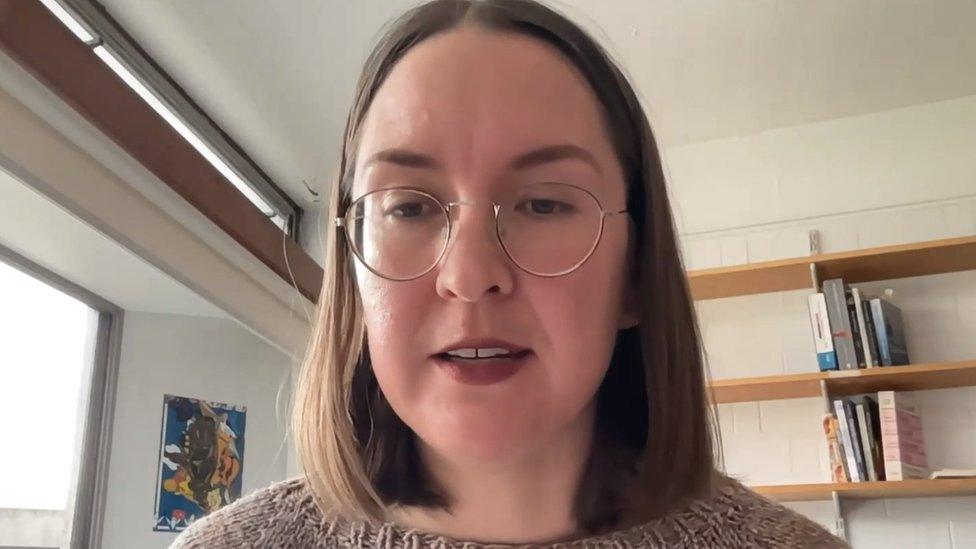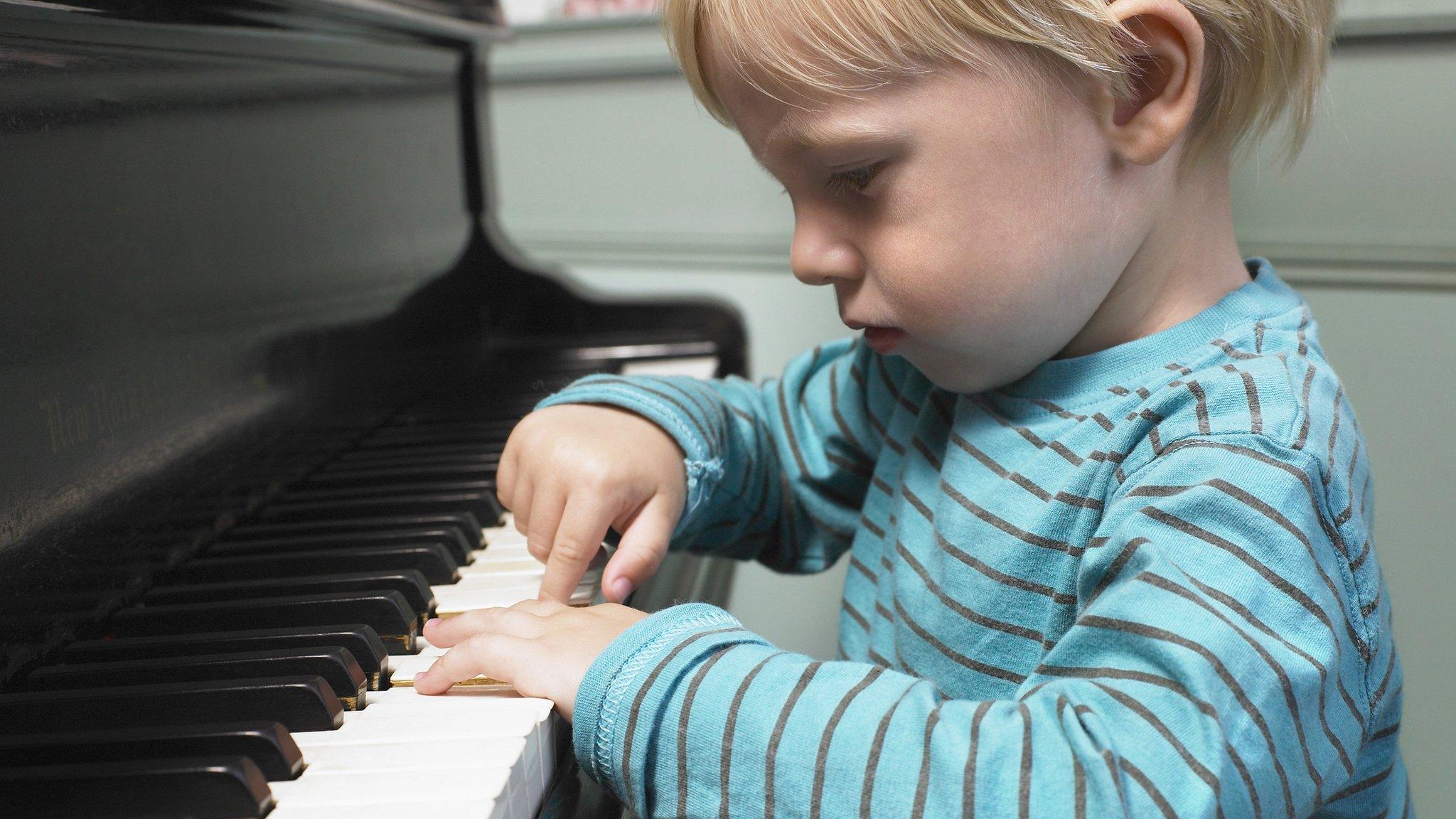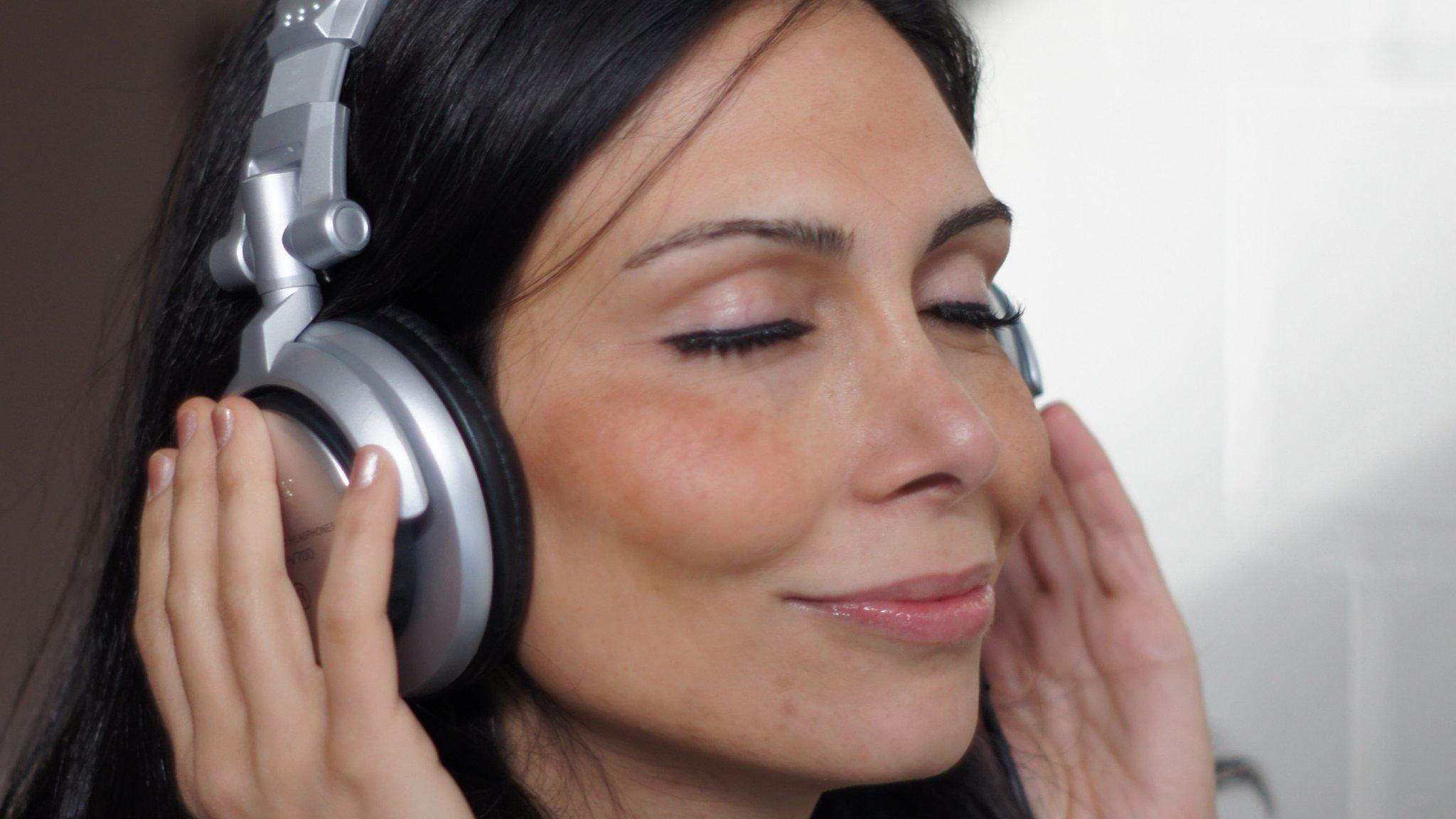DJs' brains studied in Birmingham to understand 'beatmatching'
- Published

The skill DJs use to blend one track into another is "unique" say researchers
The brain activity of club DJs as they "beatmatch" songs together is being studied by researchers to try and work out how they do it.
Dozens of volunteers have been recorded by a team at the University of Birmingham using a cap fitted with electrodes.
"Beatmatching" involves DJs seamlessly mixing one song into the next.
"That's quite an interesting and unique skill that hasn't really been studied," study lead Dr Maria Witek said.
"We think that by looking at the brain activity - and also the way that DJs use their bodies - can tell us about how that skill comes about."

DJ Mo Jones said wearing the cap fitted with electrodes left her looking like she had been "attacked by an octopus on my forehead"
One of the DJs who has been studied, Mo Jones, from Kings Heath, said it took a bit of time to get used to the cap monitoring her brain.
"The cap has to be quite tight to your head to make sure it picks up everything it needs to," she told BBC Radio WM.
"When I finished the experiment, after a couple of hours of wearing this thing, it did look like I'd been attacked by an octopus on my forehead!"
Dr Witek said her team would analyse the data collected from the brain activity of the DJs to try and understand how they developed the skill.
"We're not just recording the brain data, we also recording body movements using a system called motion capture," she added.

Dr Maria Witek is leading the study of club DJs to try and understand how they learn to "beatmatch" songs
The study has examined 27 DJs but Dr Witek said they were still looking for a few more and appealed for anyone interested to contact her through the university website.
Ms Jones said she found the experience of having her brain monitored while beatmatching fascinating.
"Somebody could say to me 'Why are you doing this?' And I was like, 'Why would I not do this?' It's so interesting," she said.

Follow BBC West Midlands on Facebook, external, Twitter, external and Instagram, external. Send your story ideas to: newsonline.westmidlands@bbc.co.uk
Related topics
- Published21 May 2014

- Published6 November 2013

- Published12 April 2013
